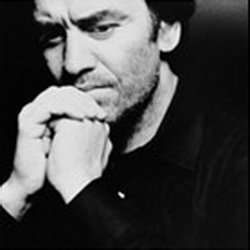|
Back
Rising In Fire From The Ashes New York
Avery Fisher Hall, Lincoln Center
04/22/2010 -
The Russian Stravinsky: A Philharmonic Festival
Igor Stravinsky: Svadebka (The Rural Wedding) – Symphonies of Wind Instruments – L’Oiseau de feu (The Firebird)
Mlada Khudoley (Soprano), Olga Savova (Mezzo-soprano), Alexander Tichenko (Tenor), Gennady Bezzubenkov (Bass), Alexander Mogilevsky, Youlia Zaichkina, Maxim Mogilevsky, Svetlana Smolina (Pianos), Christopher S. Lamb, Daniel Druckman, Erik Charlston, Gordon Gottlieb, Pablo Rieppi, Joseph Tompkins (Percussion), Markus Rhoten (Timpani)
Mariinsky Theater Chorus, Andrei Petrenko (Director), New York Philharmonic Orchestra, Valery Gergiev (Conductor)

V. Gergiev (© Decca/Marco Borggreve)
Never have I heard such resounding, continual applause as with the appearance Thursday night of the Mariinsky Theater Chorus. As the 40 men and women parted to separate sides of the stage, the applause was even greater than when conductor Valery Gergiev made his way to the dais.
The reason for the applause was that these singers had literally risen from the ashes. Rather, their plane had risen from Moscow, flown through the ashes of the Iceland volcano, and landed with a few hours to spare. That was the very dramatic start for three weeks where Russia’s most prominent conductor will be conducting virtually all the early and middle orchestral and dramatic works of Igor Stravinsky.
Some in the audience had fears that the exhausting wait and arduous plane journey might dull the performance of the Mariinsky. But we all know from long plane journeys that prior to sleep comes physical energy–artificial, perhaps, but very energetic. And this was the energy of the initial work here.
The night before, the audience had heard the ballet, Jeu de Cartes. But The Wedding–or, in the Russian translation, the country or rural wedding–put Stravinsky’s ballet in the shade.
This was Stravinsky after the utter expressiveness of Firebird, and Sacre, preceding the classical, cerebral (and sometimes monotonous) later works, like Symphonies of Wind Instruments. But The Wedding, like Sacre had no predecessors and no imitations–ever.
It was, in a way, sheer percussion. The four pianos worked as percussion instruments. The seven percussion worked as percussion players (sic). And the chorus of men and women worked with percussive joy, chanting, shouting (when necessary), and repeating their phrases, enthusiastically, plaintively, openly.
This was no ordinary chorus. The female voices could be plangent or sharp (yes, they did resemble the women of the film Alexander Nevsky), the basses went full blast when necessary (shouting out at times), but otherwise equally enthusiastic.
Mr. Gergiev had a surprise for us. Stravinsky has always stood outside the Bartók/Kodály “folk” collectors. Yet The Wedding is a celebration of folk. We heard stretches of folk-tunes, the changes of rhythm from every Slavic tradition, and above all, robust, vigorous peasant dynamism. At one time, Stravinsky called Noces a “divertimento”. He must have been joking. As played last night, this had the energy of Sacre!
The 12-minute follow-up, with the winds and brass of the New York Philharmonic, was Symphonies of Wind Instruments (Stravinsky using the Greek definition of “same tone”). In one way, this is as expressive as Noces, but one has to be ready for a mortuary expressiveness. I had heard this many times before, and it always revealed more movement. But on first listening, it had a static quality, assuaged only by the dissonant chorale at the end.
If only to relieve the electrifying Noces, it was a brilliant palliative. As a work for two Phil consorts, it was played faultlessly.
The revelation, though, was Valery Gergiev’s 47-minute complete Firebird. For those used to the effete suites (“Princess’s Dances”, ‟Lullaby”, “Disappearing Garden” finale etc), the completete Firebird, even without choreography, is a shocker. Horn-calls, eerie string tones (Gergiev took the beginning with utter mystery), and sudden energies, all made the complete Firebird into a complete picture of Stravinsky the master orchestrator, outdoing even his teacher, Rimsky-Korsakov.
To think that this only the start of the three-week festival! And yes, sorry about the volcano, Mariinsky Chorus, but you’re now on soil which is still burning to hear more from you!
CODA: I have no choice but to list the complete festival below. It is a gift from the pagan Scythian gods.
April 24: Jeu de Cartes, Symphony of Psalms, The Firebird
April 28, 29: The King of The Stars (very rare), Violin Concerto, Oedipus Rex (narrated by Jeremy Irons)
April 30, May 1: Oedipus, Orpheus
May 2: Renard, The Soldier’s Tale (told by Alex Baldwin)
May 5, 6: Symphony in C, Petrushka (1911 version), Capriccio for Piano
May 7, 8: Concerto for Piano and Wind Instruments, Symphony in Three Movements, The Rite of Spring
Harry Rolnick
|